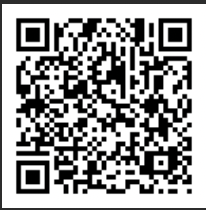Receiving allegations of misconduct can be challenging, and this guide is designed to help you get support and respond to the allegation effectively.
UNSW College Conduct and Integrity team is impartial, and our role is to find out what has happened. If you have any questions throughout this process, please contact the Conduct & Integrity Team for support.
What are the Stages of the Misconduct Process?
| Stage | Description |
| Stage 1: Initial Assessment | The Case Manager will assess if the alleged breach of the Student Code falls within the scope of the Student Misconduct Procedure. Further information may be sought from relevant parties to complete this initial assessment. If it is determined that the matter constitutes a breach of the Student Code and there is serious threat from you in relation to the safety of the College community or the proper functioning of any College activity or damage to its resources, you may be suspended from the College as an immediate intervention while an investigation is undertaken. |
| Stage 2: Investigation | The purpose of the investigation is to make findings of fact, enabling the Case Manager to assess if a breach of the Student Code has occurred, the extent of the breach and any further action required. In conducting the investigation, the Case Manager will provide you with a written statement of allegations and invite you to admit or deny the allegations in whole or part within ten (10) working days of receiving the notice of alleged breach of the Student Code. If you fail to respond to the allegations, the process will proceed directly to the determination stage. |
| Stage 3: Determination | On completion of the investigation and receipt of your submission, the Case Manager will prepare a report and submit it to the Student Misconduct Committee. The Student Misconduct Committee will consider all available evidence and decide if it is more likely than not that the Student Code has been breached. |
| Stage 4: Penalty | The Student Misconduct Committee will consider your response to the allegation, and any mitigating circumstances you have provided. A penalty will then be applied, and the case will conclude. |
How to respond to the allegation
Once you receive an allegation of misconduct, you will have ten (10) working days (unless otherwise specified) to provide a written response.
If there are extenuating circumstances meaning you need reasonable additional time to respond, please let your Case Manager know.
To respond, you have two options:
- you can admit to the allegations
- you can deny the allegations. If there are multiple allegations of misconduct, you may decide to admit to some allegations but deny others.
If there are mitigating circumstances (e.g. personal, health, family) that may have influenced your actions that you would like us to consider when determining an outcome, please provide a clear explanation in your response and provide any available supporting documentation for these circumstances.
- Option 1: If you want to admit to the allegations
If you want to demonstrate your honesty and integrity by admitting to the allegations, the matter will proceed to Determination and Penalty stages and be finalised. Your honesty in admitting to the allegations will be taken into consideration for the determination and applied penalty.
- Option 2: If you want to dispute the allegations
If you deny the allegations, you must provide any supporting documents that you have to support your response.
If you do not respond within ten (10) working days or where there is no additional provable or relevant evidence likely to be discovered during an investigation, a Determination may be made based on the available evidence.
What should your response include?
To assist us in making a fair and informed decision, it is recommended that your response and any supporting documentation you may submit be:
- Clear and Detailed: Ensure that your response is specific, detailed and unambiguous.
- Verifiable: Any supporting documentation or evidence submitted may be subject to back-to-source checks, and where this is not possible, it is less likely to be considered compelling.
- Genuine: Your evidence needs to be factual, authentic and unmodified.
If you are found to have been dishonest in any of your responses, or provide falsified or misleading information, this may have serious consequences which may include suspension or exclusion from UNSW College.
Do you need to respond yourself, or can someone else do it for you?
We expect that your response be written and submitted by you, in your own words. If another person has helped you write your response, written it for you or if you use tools like ChatGPT or translation services to prepare your response, please let us know.
We know that there are individuals and services online who offer help to respond to misconduct allegations, however, using these services often carries significant risks. They may be illegitimate, provide poor and generic advice, and could scam or blackmail you.
Using these services could lead to additional misconduct allegations being made against you, financial loss, and a negative impact on your case. If you have any questions throughout this process, please contact the Conduct & Integrity Team for support.
Do you need to have a meeting with your Case Manager?
Admitting to the allegations or making a denial does not require a meeting, however, a written response to the allegations raised is compulsory. This can simply be an email, or you may choose to write this in a document and attach it to your email response.
However, if you wish to have a meeting to discuss the matter or the process, please contact the Conduct & Integrity Team.
Meeting your Case Manager
A meeting with your Case Manager is not compulsory. However, if you would like to discuss this matter via a meeting, the option is available. You may bring a support person to a meeting if needed.
If you meet with your Case Manager, they may also bring along another staff member to witness and assist with the meeting. You will be provided with a recording or notes from any meeting you attend to ensure the accuracy of the information we collect.
At the start of the meeting, you will be required to provide your student ID card to your Case Manager so they can verify your identity. If you bring a support person, they will also be required to present some form of photo ID. Copies of your & your support person’s ID may be taken and securely stored for verification purposes.
What is a support person?
A support person is someone that you may choose to bring to a meeting with your Case Manager to discuss your case. They are there to provide you with emotional and practical support but are not there to speak on your behalf.
A support person can sit in on a meeting with you and your Case Manager and observe, though they do not take part in this.
| A support person can | A support person cannot |
| – Provide emotional support. – Help you understand what is being said. – Assist you by taking notes. – Ask for breaks if they think it’s needed. | – Speak on your behalf. – Paraphrase your responses. – Advocate for you. – Provide you with suggested responses to questions. |
Your support person is also required to maintain confidentiality of the misconduct process, and anything that is discussed during your meeting with your Case Manager. If your support person does not abide by these guidelines, they may be asked to leave the meeting, or the meeting may be ended.
Inviting a support person to a meeting
If you have a support person you would like to bring to a meeting with your Case Manager, please contact them via email at [email protected] to notify them at least 48 hours before the meeting. Your Case Manager will be able to inform you if there is any reason that your support person would be unsuitable.
If you do not give advance warning that you are bringing a support person, or they are unable to provide identification, they may not be permitted to join the meeting.
Your responsibilities
Engaging in retaliatory action because a person has chosen to speak up, made a complaint of misconduct or raised a concern is strictly against the Student Code. UNSW College will make all reasonable efforts to protect all parties involved, including yourself.
You are expected to engage with all staff involved in this process respectfully, and failure to do so may result in serious consequences.
How long will this process take?
The College will endeavour to resolve the matter as quickly as possible within twenty (20) working days of receipt of your response to the allegations (or, in the event that you fail to respond to the allegations, within 20 working days of the deadline for your response). If this timeframe is not possible, the College will advise you of an alternative timeframe that is appropriate in the circumstances.
It is important to highlight that if you engage with this process honestly, and provide us with appropriate information and supporting documentation, it is likely to be resolved much more swiftly.
Getting help for your wellbeing
We understand that going through this process can be stressful. UNSW College offers free, confidential wellbeing support to help you during this time. Please do not hesitate to reach out for support by email, or in person at the Student Enquiries Desk on Level 1 of the UNSW College L5 Building. The Student Wellbeing Team is available Monday to Friday, 9am to 5pm.
- Email a Student Wellbeing Adviser for support here (please include your name, zID, appeal information).
- Book a wellbeing appointment with a Student Wellbeing Adviser
If you are feeling unwell, unusual, nervous, lonely, stressed or depressed, there is free confidential help available any time of the day:
- Call the UNSW After Hours Mental Health Support Line between 5pm and 9am Monday to Friday and 24 hours on weekends and Public Holidays)
- Call Lifeline on 131 114 (24/7)
- International students in Australia: Medibank’s 24/7 International Student Health and Support Line: 1800 887 283
- International students not in Australia: Medibank +61 (2) 89050307 (24/7)



